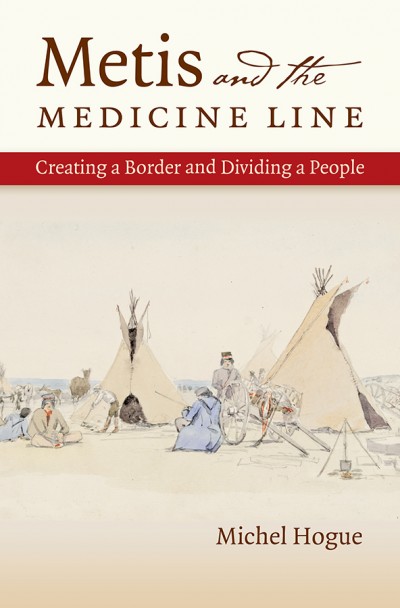Michel Hogue speaks so energetically about the personalities in his new book Métis and the Medicine Line: Creating a Border and Dividing a People (University of North Carolina Press, 2015), you’d almost think he had met them in person. But as you might expect from an assistant professor in the History department, it turns out that these fascinating figures emerged from the archive.
Take Antoine Ouellette, a favourite example. Born into a Manitoba hunting and trading family, Ouellette was one of three brothers who married three sisters. He appears near the end of Hogue’s study, which explores the agency of the Métis people between the 1800s and the early twentieth century (primarily centred in the 1880s) as they moved back and forth across the Canadian-American border….
In contrast to some popular portrayals of the native person at the mercy of their governments, Hogue’s narrative reveals how Ouellette and his contemporaries claimed a lot of agency in their situation. “What this gentleman and a bunch of others in the 1880s did when the Canadian government started issuing scrip was travel across the border in Canada to claim it, all the while pursuing other avenues in the United States,” says Hogue.
Hogue adds that they were far from passive either. “One argument the book makes is that the Métis people were obviously profoundly affected by the hardening of the border, but they also participated as key players,” says Hogue.
Read the rest of Suzanne Bowers’ interview with Professor Hogue here. To know more about Professor Hogue, who teaches Canadian, American and Indigenous Histories at Carleton click here or go to michelhogue.com.
